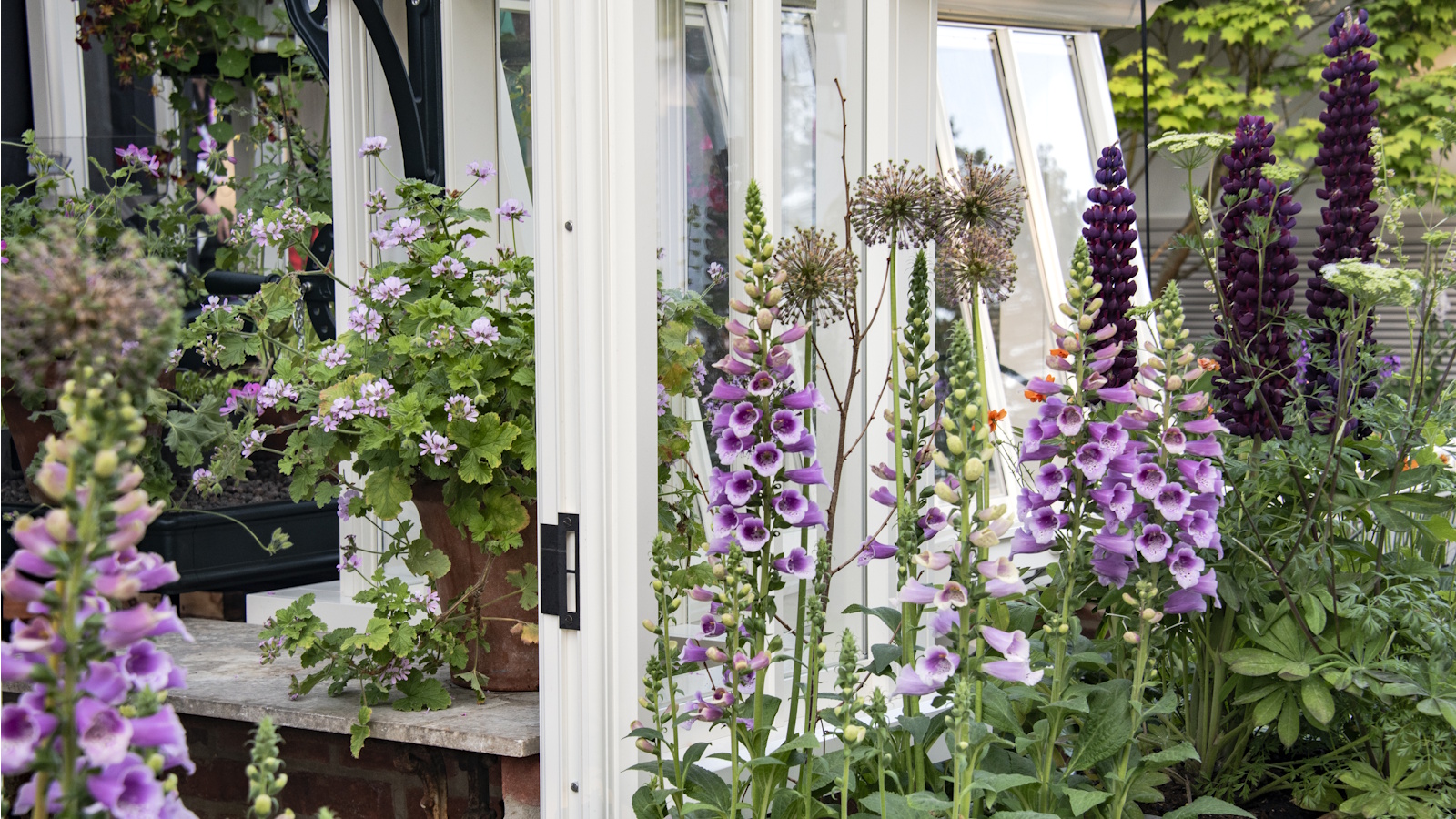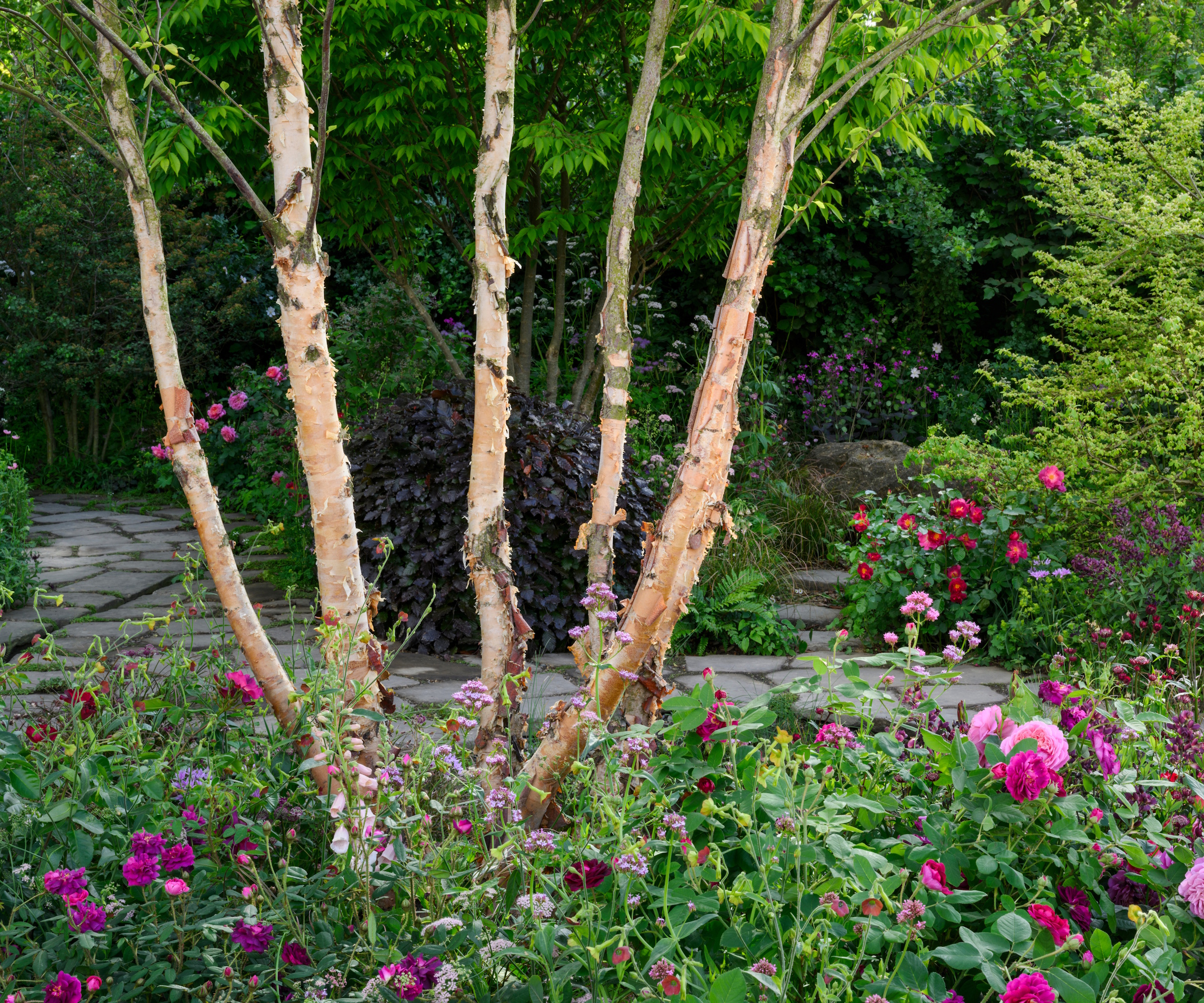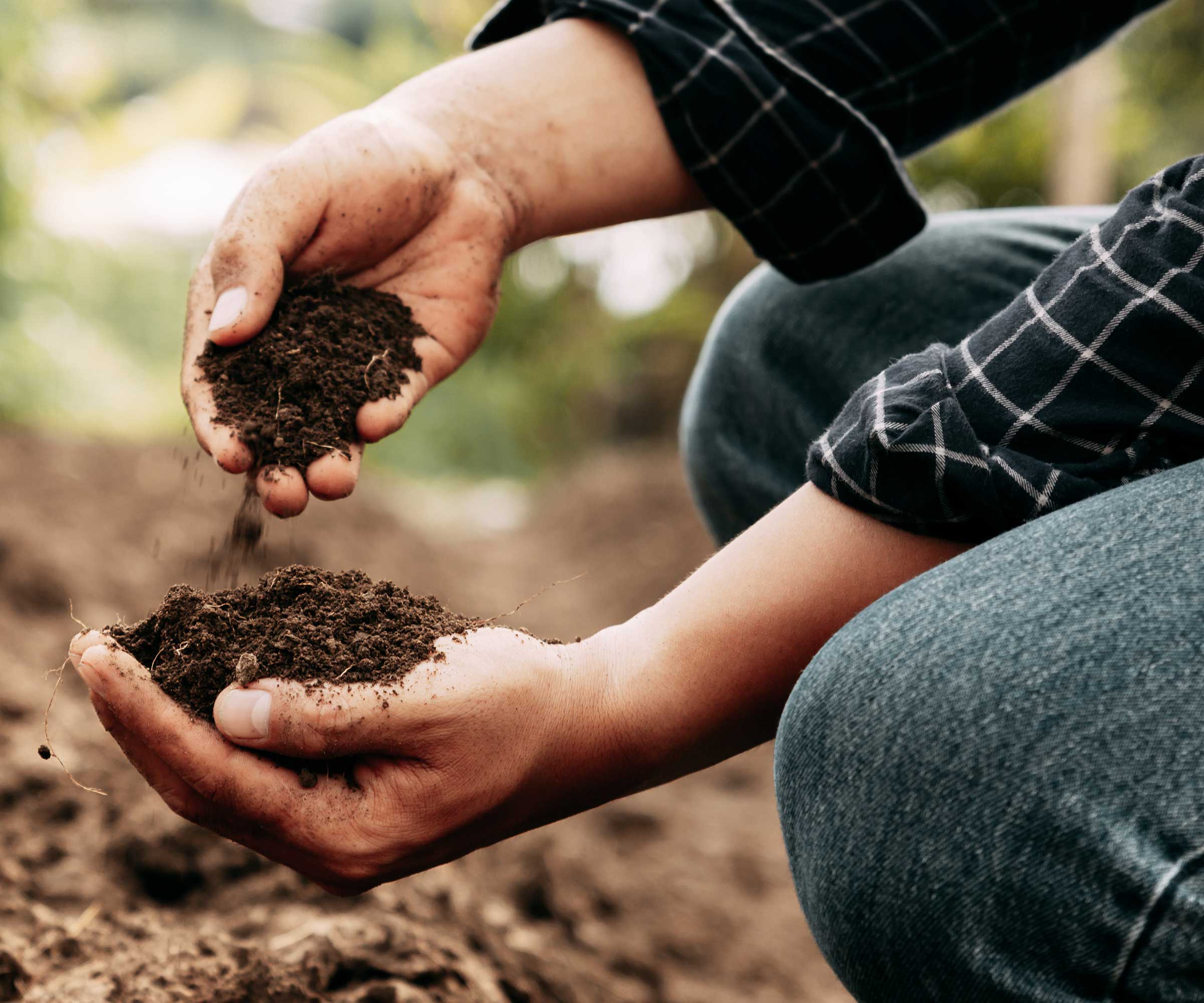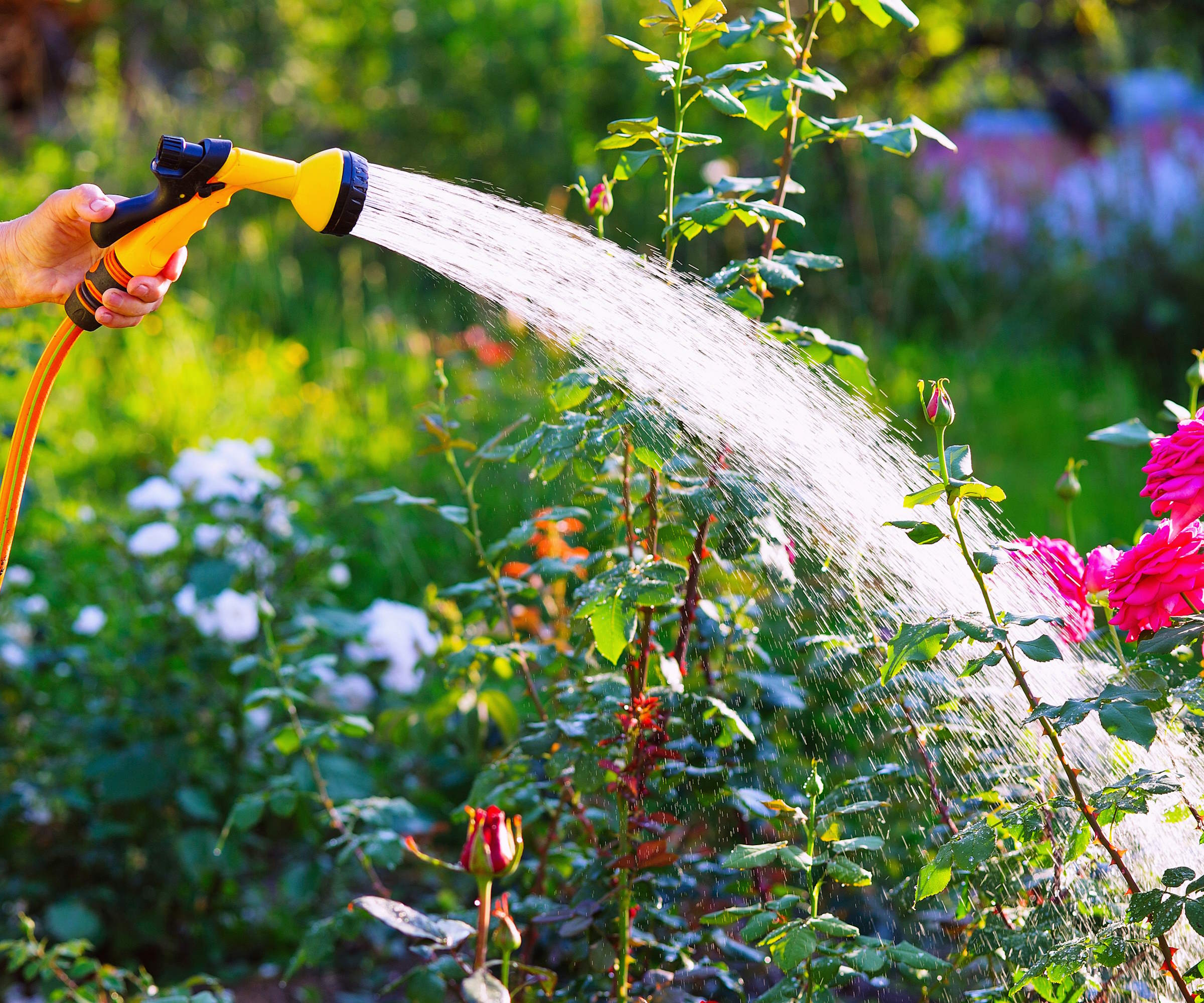How to make compost tea – this simple concoction is the best organic fertilizer for plants, says a composting expert
Packed with nutrients, this easy DIY will boost growth of edible and ornamental plants alike


Design expertise in your inbox – from inspiring decorating ideas and beautiful celebrity homes to practical gardening advice and shopping round-ups.
You are now subscribed
Your newsletter sign-up was successful
Want to add more newsletters?

Twice a week
Homes&Gardens
The ultimate interior design resource from the world's leading experts - discover inspiring decorating ideas, color scheming know-how, garden inspiration and shopping expertise.

Once a week
In The Loop from Next In Design
Members of the Next in Design Circle will receive In the Loop, our weekly email filled with trade news, names to know and spotlight moments. Together we’re building a brighter design future.

Twice a week
Cucina
Whether you’re passionate about hosting exquisite dinners, experimenting with culinary trends, or perfecting your kitchen's design with timeless elegance and innovative functionality, this newsletter is here to inspire
With a keen interest in making more eco-choices in the yard, I'm always excited to learn of new organic fertilizers I can feed my plants to boost their growth. That combined with a love for composting has landed me exploring compost tea; a liquid fertilizer that uses fresh compost.
If you already make your own compost, you can make compost tea easily. You can also just use compost you've purchased from the garden center. 'Compost tea is a liquid made by steeping fully finished compost in water to extract beneficial microbes and nutrients,' describes Lauren Click, founder of Let's Go Compost.
Full of nutrients for plants, compost tea is a great option to make plant fertilizer. Plus, it can be used on fruit, vegetables, and ornamental plants alike. Here, Lauren reveals all about how to make compost tea and the benefits this nutrient-rich mixture brings garden plants.
Why is compost tea good for plants?

With compost being an organic growing medium full of essential plant nutrients, it's no surprise compost tea encourages strong, healthy plant growth.
'It is primarily used to improve soil health, support plant growth, and naturally suppress certain diseases,' Lauren explains.
Of course, the range of unusual compost ingredients you put in your pile, including compostable tea bags, composting weeds, and composting pumpkins, will deliver macronutrients in the form of nitrogen, phosphorus, and potassium (NPK plant fertilizer numbers), as well as micronutrients and trac minerals.
But, compost is also rich in microorganisms and beneficial bacteria. As Lauren notes, this presence in compost tea helps plants fight disease, improve immunity, and improve soil structure.
Design expertise in your inbox – from inspiring decorating ideas and beautiful celebrity homes to practical gardening advice and shopping round-ups.
Other benefits of compost tea include robust root development and not needing to use the chemicals found in many synthetic fertilizers, lowering the environmental impact on the ecosystem in your yard.

Lauren is the founder of Let's Go Compost, a 501(c)(3) non-profit with a mission to make composting free and accessible throughout the United States. Lauren works both in the dirt (literally) with public schools and community gardens, while also remaining focused on the big picture - working with large organizations and policymakers to ensure composting accessibility and affordability are kept front of mind as infrastructure is developed.
How to make compost tea

With more understanding of why you should use compost tea, you can go ahead and start to make compost tea at home. It's a simple mixture to make – here's what Lauren advises:
'To make compost tea, combine one part compost with five to 10 parts clean, potable water in a sanitized container,' says Lauren.
If you aren't using homemade compost, opt for a good quality all-purpose compost (from Amazon). You'll also want to choose a large enough container for the amount of compost tea you want to make, like this one gallon bucket from Walmart.
'For best results, use an aquarium pump to aerate the mix continuously for 24 to 48 hours,' Lauren says. You can find a submersible water pump on Amazon, which will prevent the water-based mixture become stagnant and smelling bad.
After this steeping period, Lauren advises straining out solids using a food-safe mesh bag (from Amazon).
Your compost tea is then ready for use.
How to use compost tea

There are a few different ways to use compost tea in the yard. Lauren suggests the following technique:
'Use the tea immediately for maximum microbial benefit. You can dilute it and then pour it around the base of plants as a soil drench or apply it to leaves using a spray bottle (from Amazon),' Lauren describes.
Applying the compost tea to the leaves provides a foliar uptake, which often provides a faster absorption of nutrients than soil application.
'Never spray compost tea on edible leaves you plan to eat raw,' Lauren warns.
Nevertheless, compost tea can be used as a fertilizer for a vegetable garden and fertilizer for flowers in pots.
'Ideally use your compost tea in the early morning or evening,' Lauren says.
Just like other types of fertilizer, it can be a fertilizing mistake to feed plants during the hottest point of the day. It may cause fertilizer burn and stress out the plant.
FAQs
What's the best compost for compost tea?
Good quality compost should be used to make compost tea, whether you make it yourself or purchase it. Lauren Click, founder of Let's Go Compost, has some words of warning:
'Do not use compost made with raw manure, meat, dairy, or pet waste, as these can carry pathogens.
'Only use mature compost, dark, crumbly, earthy-smelling, and fully cured. This means it has passed through the hot phase (130–140°F) and aged at least two to four months,' Lauren says.
Can you store compost tea for later use?
No, it is generally not recommended to store compost tea for later use.
'Never store compost tea, as it quickly loses its microbial activity and may become unsafe,' says Lauren Click, founder of Let's Go Compost.
'If it smells sour or rotten, throw it out. Keep children and pets away from brewing containers, especially since bubbling can release aerosols,' she warns.
Instead, use compost tea immediately to reap the greatest benefits for your plants.
To make the best compost tea possible, it's wise to educate yourself on composting mistakes to avoid and how to speed up composting so you can get your tea more quickly.
If you're interested in making more organic fertilizer, try using vegetable peels as fertilizer or even oatmeal fertilizer for plants.

Tenielle is a Gardens Content Editor at Homes & Gardens. She holds a qualification in MA Magazine Journalism and has over six years of journalistic experience. Before coming to Homes & Gardens, Tenielle was in the editorial department at the Royal Horticultural Society and worked on The Garden magazine. As our in-house houseplant expert, Tenielle writes on a range of solutions to houseplant problems, as well as other 'how to' guides, inspiring garden projects, and the latest gardening news. When she isn't writing, Tenielle can be found propagating her ever-growing collection of indoor plants, helping others overcome common houseplant pests and diseases, volunteering at a local gardening club, and attending gardening workshops, like a composting masterclass.